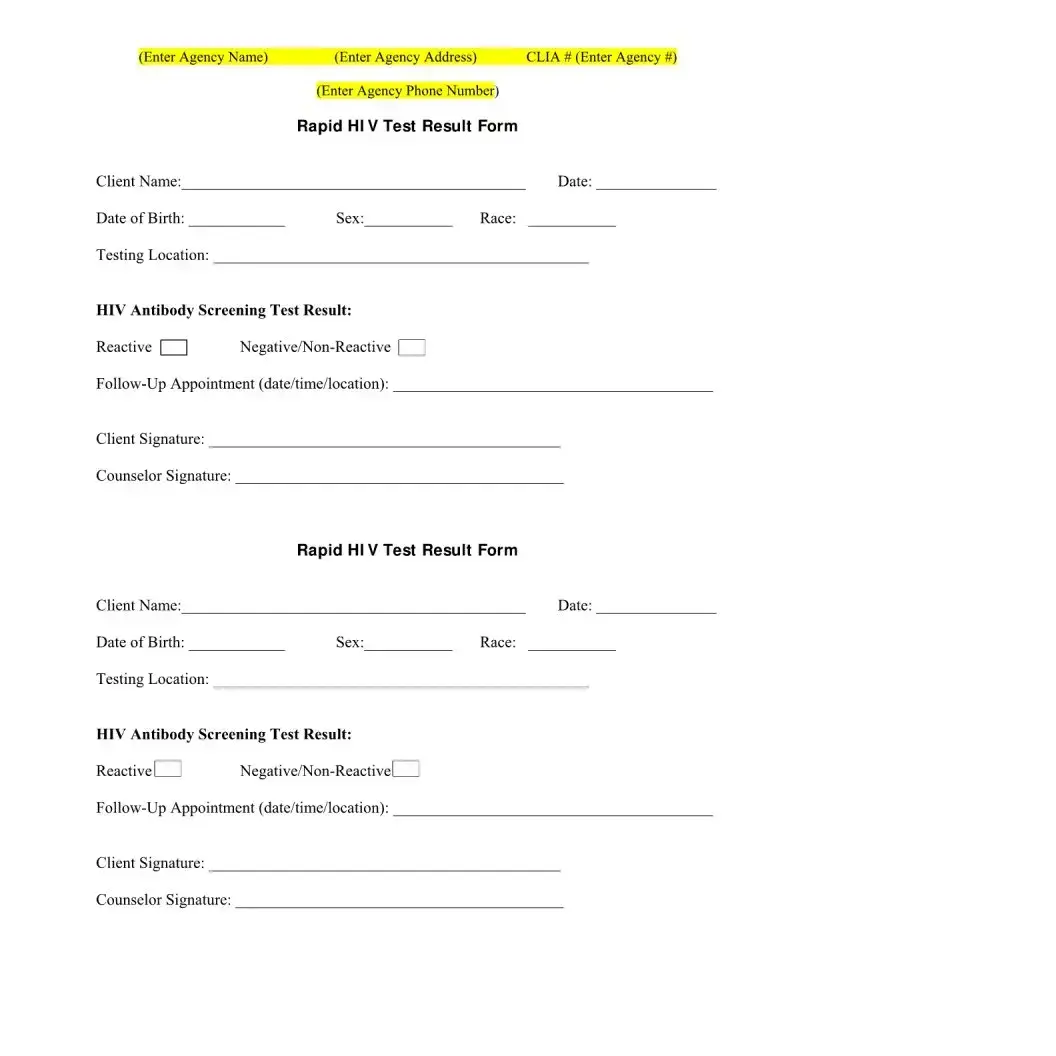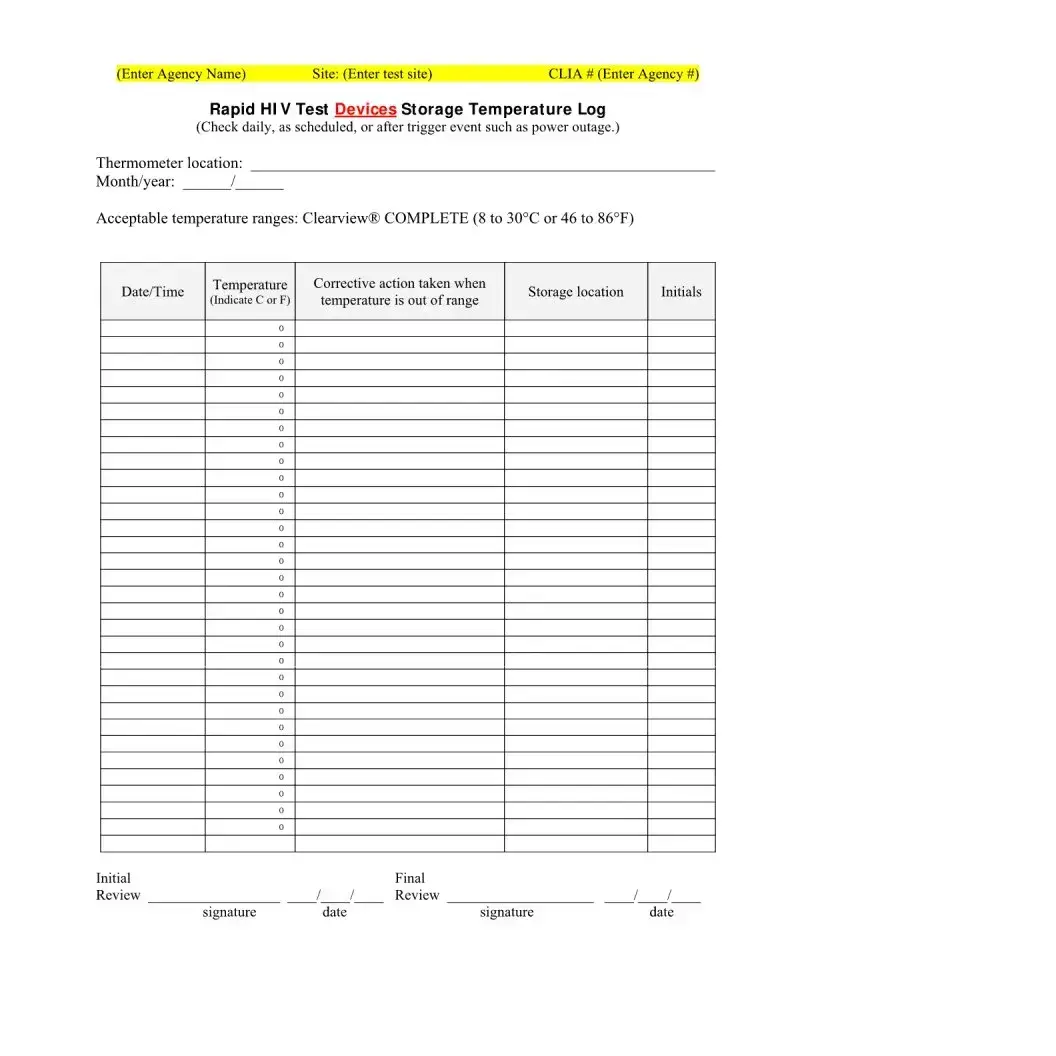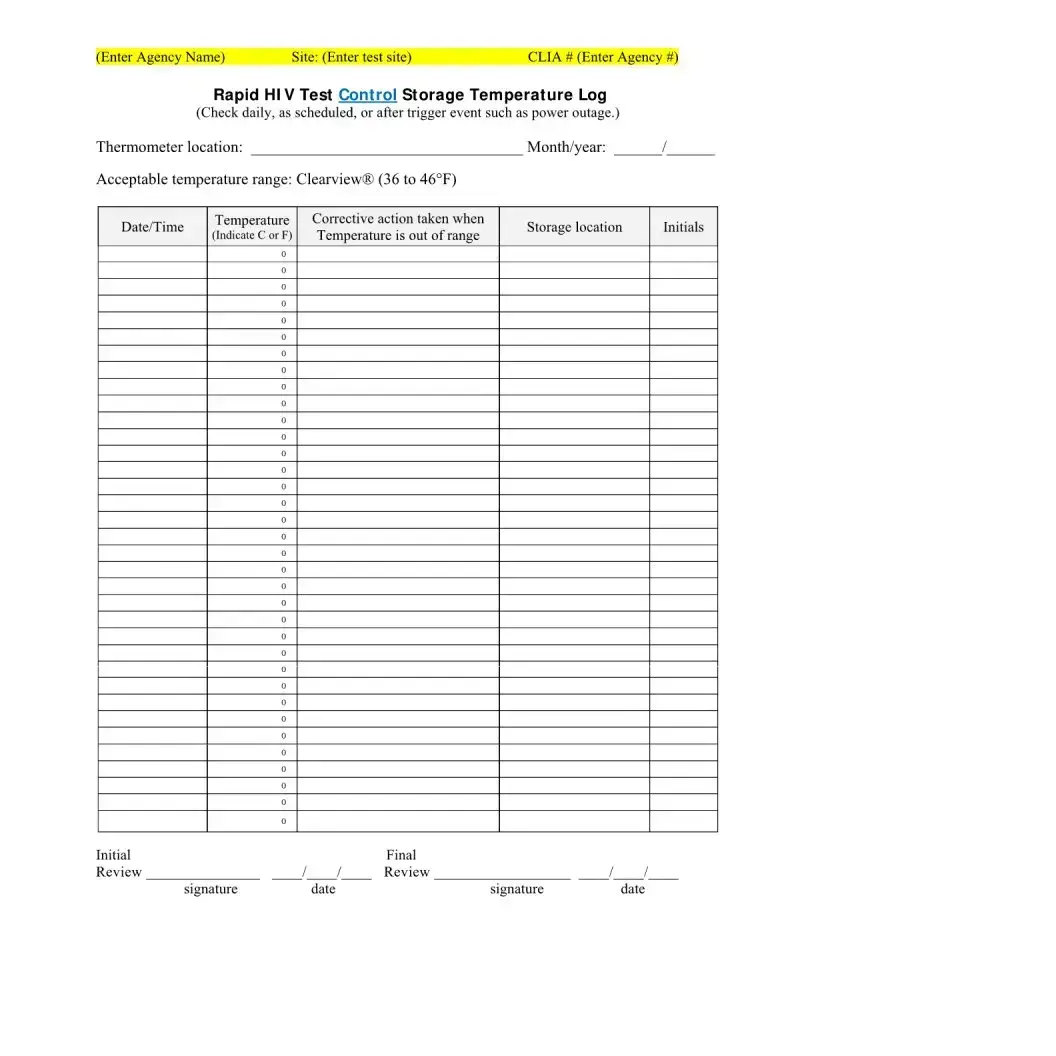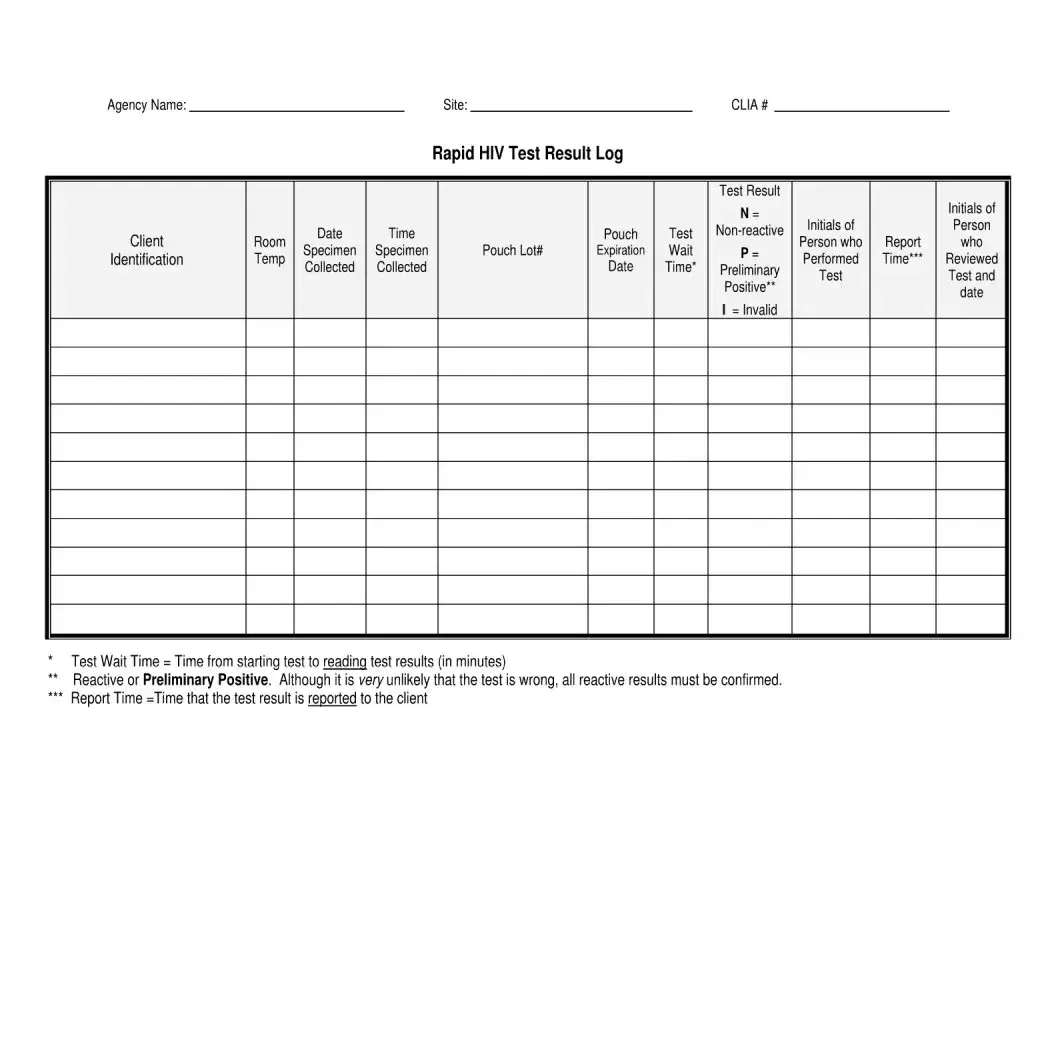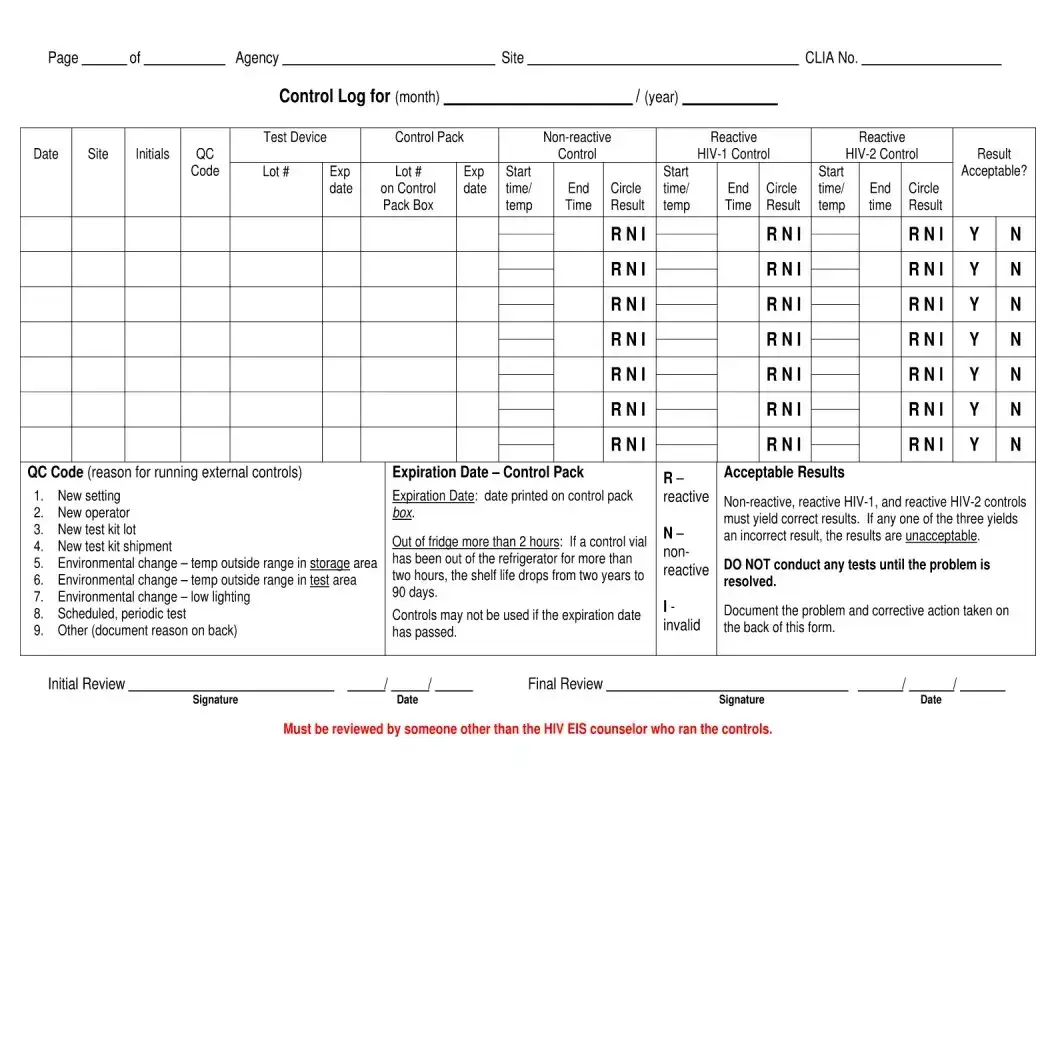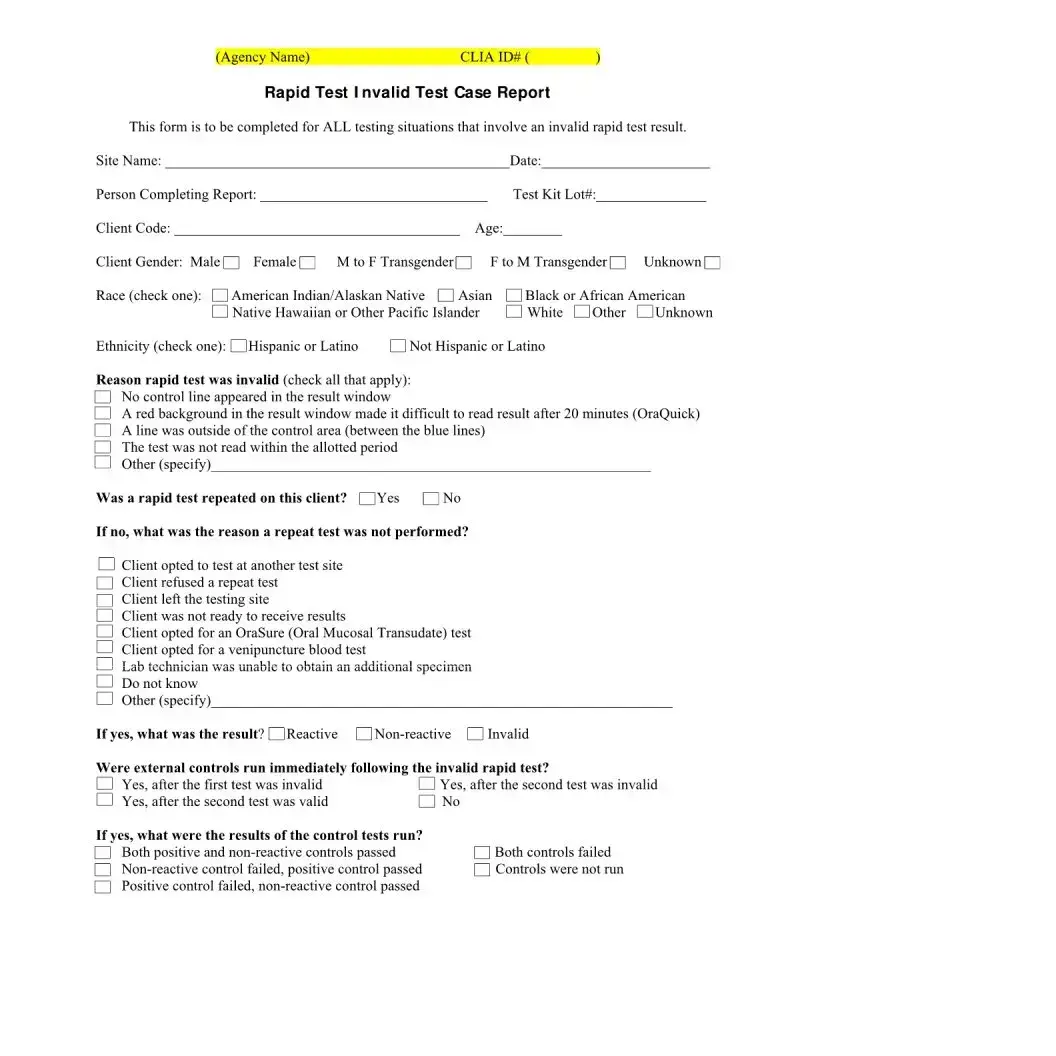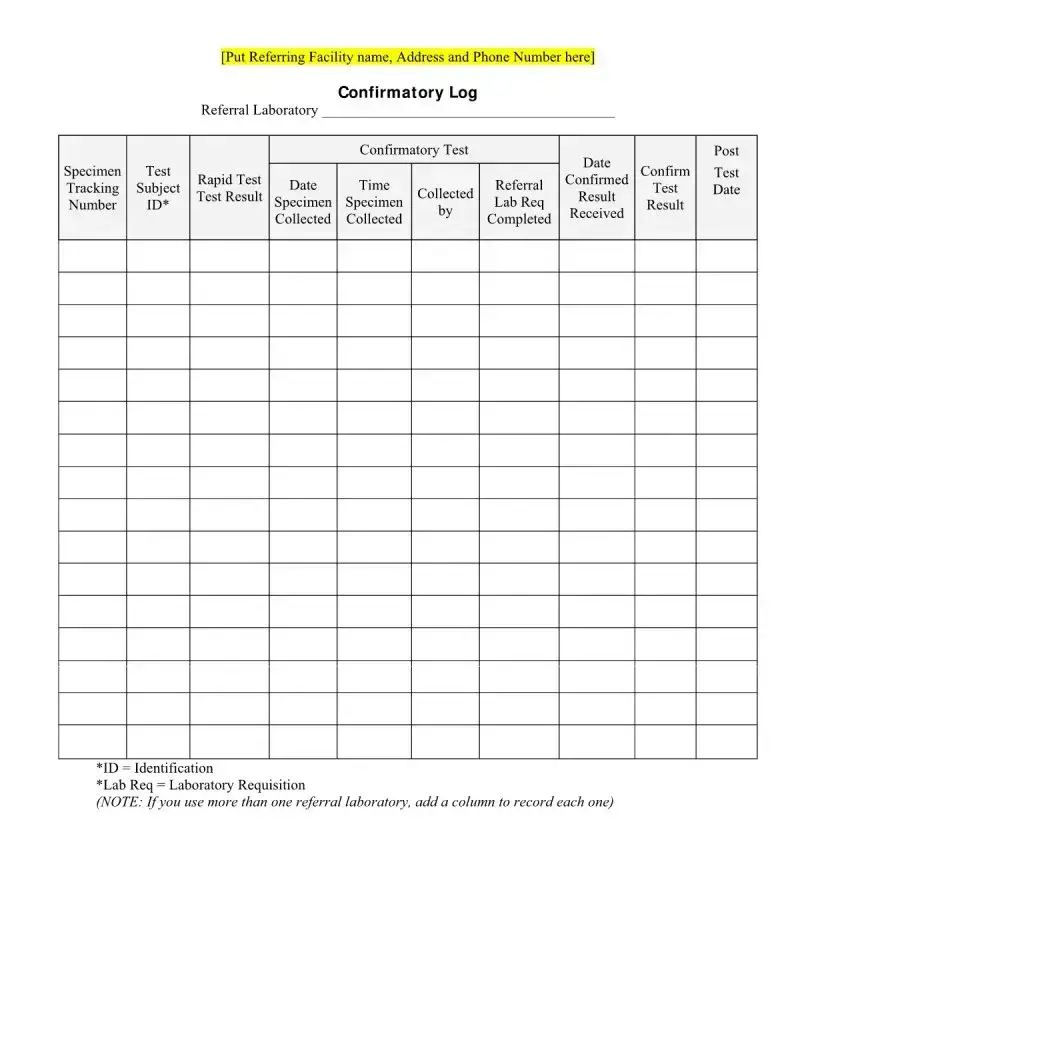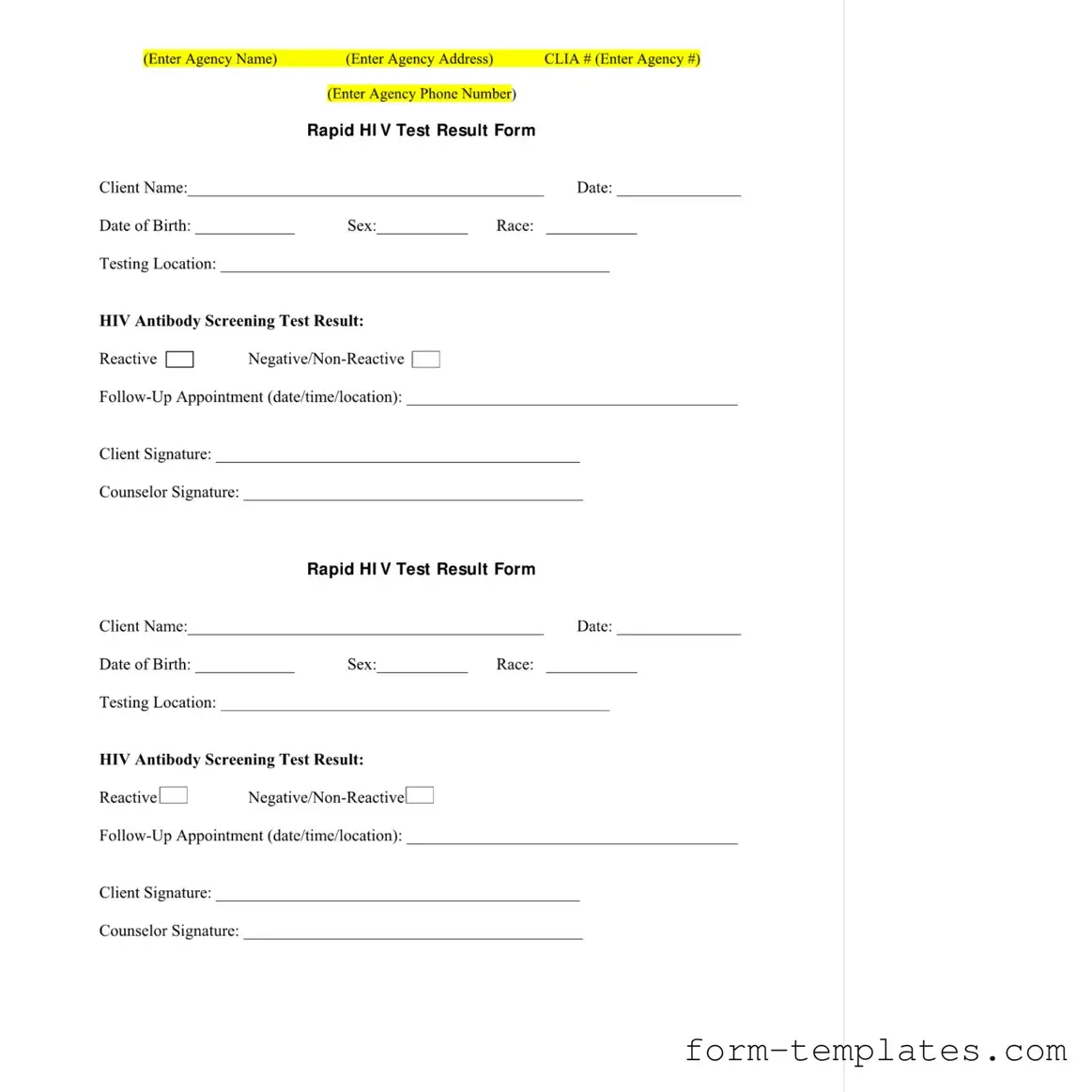Fill Out a Valid Negative Hiv Test Template
Guide to Writing Negative Hiv Test
Completing the Negative HIV Test form is an important step in ensuring accurate record-keeping and follow-up care. It is essential to fill out the form carefully to avoid any delays in processing your results. Below are the steps to follow when filling out the form.
- Enter the agency name at the top of the form.
- Provide the agency address below the agency name.
- Fill in the CLIA number of the agency.
- Input the agency phone number for contact purposes.
- In the "Client Name" section, write the full name of the client.
- Enter the client's date of birth in the designated space.
- Fill in the date of the test.
- Specify the client's sex and race in the appropriate fields.
- Indicate the testing location where the test was performed.
- Mark the result of the HIV antibody screening test as either "Reactive" or "Negative/Non-Reactive."
- Schedule a follow-up appointment by providing the date, time, and location.
- Have the client sign the form to acknowledge their results.
- Ensure the counselor also signs the form to validate the process.
Once the form is completed, it should be reviewed for accuracy. Proper documentation will aid in any necessary follow-up and ensure the client receives the appropriate care and support.
Document Breakdown
| Fact Name | Description |
|---|---|
| Client Information | The form requires the client's name, date of birth, sex, and race to ensure accurate record-keeping and follow-up. |
| Testing Location | The form specifies the testing location, which is crucial for tracking the site of the test and ensuring compliance with local regulations. |
| Test Result | The HIV antibody screening test result is clearly indicated as either Reactive or Negative/Non-Reactive, providing immediate information to the client. |
| Follow-Up Appointment | A section for scheduling a follow-up appointment is included, emphasizing the importance of ongoing care and support. |
| Client and Counselor Signatures | Both client and counselor signatures are required, ensuring acknowledgment of the test results and the counseling provided. |
| Storage Temperature Log | Temperature logs for test devices and controls must be maintained, as improper storage can affect test accuracy. |
| CLIA Compliance | The form includes a CLIA number, indicating compliance with federal regulations governing laboratory testing. |
| Test Result Log | A log for recording test results, including initials of personnel involved, ensures accountability and traceability of results. |
| State-Specific Regulations | Each state may have specific laws governing HIV testing and reporting; it's essential to be aware of these to ensure compliance. |
FAQ
What is the Negative HIV Test form?
The Negative HIV Test form is a document that records the results of an HIV antibody screening test. It includes important information such as the client’s name, date of birth, race, and testing location. The form indicates whether the test result is reactive or non-reactive, which helps clients understand their health status.
What does a non-reactive result mean?
A non-reactive result indicates that no HIV antibodies were detected in the client’s blood at the time of testing. This generally means that the person is not infected with HIV. However, it is important to remember that no test is perfect, and follow-up testing may be recommended based on risk factors.
What should I do if I receive a reactive result?
If you receive a reactive result, it is crucial to seek further testing. A reactive result does not confirm HIV infection; it requires additional testing for confirmation. The form will provide information about scheduling a follow-up appointment, where a healthcare professional can guide you through the next steps.
How is the form completed?
The form should be filled out by a trained counselor or healthcare provider. They will enter the client’s personal information, test results, and any follow-up appointments. Clients are also required to sign the form to acknowledge their results and the information provided.
What information is included on the form?
The form includes the following information:
- Client Name
- Date of Birth
- Race
- Testing Location
- HIV Antibody Screening Test Result
- Follow-Up Appointment Details
- Signatures of the Client and Counselor
Why is temperature logging important for test devices?
Temperature logging is essential to ensure that test devices are stored at the correct temperature. Improper storage can affect the accuracy of test results. The form includes a section for recording daily temperatures and any corrective actions taken if the temperature falls outside the acceptable range.
Who can access my HIV test results?
Your HIV test results are confidential and should only be shared with authorized personnel, such as healthcare providers involved in your care. You have the right to know who accesses your information and how it is used. Always discuss any concerns about privacy with your healthcare provider.
Fill out Other Forms
Cuddle Application - Participants are welcome to share any additional comments or thoughts.
The Employee Availability form is essential for employers seeking to optimize their scheduling processes. By gathering crucial information about when employees are available to work, this form aids businesses in meeting their staffing needs while also considering personal commitments. For those looking to streamline this process, utilizing the Employee Availability Form can enhance both workplace efficiency and overall employee satisfaction.
Power of Attorney for a Motor Vehicle - The Vehicle POA REG 260 gives another person power over specific vehicle actions.
Negative Hiv Test Example
